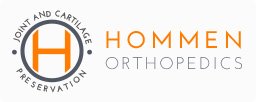Adequate nutrition is essential for optimal health and plays a crucial role in the healing process after surgery. The stress of surgery can lead to a variety of physiological changes that increase the body's need for certain nutrients, and poor nutrition can contribute to a range of complications and delayed healing. This is where the importance of perioperative diet, vitamins, minerals, and supplements comes into play. By focusing on a balanced and nutrient-rich diet, as well as targeted supplement use, patients can support their body's healing process, reduce the risk of complications, and optimize their overall surgical outcomes. Let’s explore the benefit and key nutrients and supplements that are important for patients undergoing surgery, and discuss the ways in which they can be incorporated into a healthy perioperative diet.
What are the Benefits?
Patients undergoing any type of surgical procedures, ranging from short outpatient and minimally invasive procedures to major surgical procedures requiring prolonged hospitalization, can benefit from an optimized diet of vitamins, proteins, fats, minerals, pre- and pro-biotics as well as oral supplements.
- Improved wound healing: Adequate nutrition is essential for proper wound healing. Perioperative nutrition and supplements can help ensure that patients have the necessary nutrients to promote wound healing and reduce the risk of infection.
- Reduced complications: Malnutrition can increase the risk of complications such as infections, delayed wound healing, and poor surgical outcomes. Providing patients with perioperative nutrition and supplements can help reduce these risks and improve patient outcomes.
- Improved immune function: Proper nutrition is essential for maintaining a healthy immune system. Perioperative nutrition and supplements can help boost the immune system, reducing the risk of infections and other complications.
- Improved recovery: Good nutrition can help patients recover more quickly from surgery. Providing perioperative nutrition and supplements can help speed up recovery time and reduce the length of hospital stays.
- Reduced hospital costs: Patients who receive perioperative nutrition and supplements may have a lower risk of complications and require less postoperative care, reducing hospital costs.
What are Important Perioperative Dietary Nutrients and Supplements ?
Vitamins:
Vitamins are organic compounds that are essential for normal body function. They are divided into two categories: water-soluble and fat-soluble. Water-soluble vitamins, such as vitamin C and the B vitamins, are not stored in the body and must be consumed daily through diet or supplements. Fat-soluble vitamins, such as vitamins A, D, E, and K, are stored in the body and can accumulate to toxic levels if consumed in excess.
- Vitamin C is essential for wound healing and collagen synthesis. It also has antioxidant properties that can help reduce inflammation and oxidative stress. It can be found in fruits and vegetables such as citrus fruits, berries, kiwi, peppers, and broccoli.
- Vitamin D is important for bone health and immune function. It can be obtained through sunlight exposure or through dietary sources such as fatty fish, egg yolks, and fortified dairy products.
- B vitamins, including thiamine (B1), riboflavin (B2), niacin (B3), pyridoxine (B6), and cobalamin (B12), are important for energy production, nervous system function, and red blood cell formation. They can be found in a variety of foods, including whole grains, fortified cereals, meat, fish, poultry, beans, and leafy greens.
- Vitamin A is important for wound healing and immune function, making it a crucial nutrient for patients recovering from surgery.
- Vitamin D is important for bone health and can help reduce the risk of bone fractures, which may be especially important for older patients or those undergoing orthopedic surgeries.
- Vitamin E is a powerful antioxidant that can help reduce inflammation and oxidative stress, which can be important for reducing the risk of postoperative infections and complications.
Proteins:
Proteins are made up of amino acids and are essential for building and repairing tissues in the body. There are many different types of proteins, including complete proteins that contain all essential amino acids, and incomplete proteins that do not. Good sources of protein include lean meat, poultry, fish, beans, lentils, nuts, and seeds.
Fats:
Fats are an essential nutrient that provide energy and help support cell growth and function. They are divided into two categories: saturated and unsaturated. The types of fats that are recommended for a healthy diet are primarily unsaturated fats. Unsaturated fats are generally considered healthier than saturated and trans fats because they can help improve blood cholesterol levels and reduce the risk of heart disease.
Types of unsaturated fats:
- Monounsaturated fats: These are found in foods such as olive oil, avocados, nuts, and seeds. Studies have shown that a diet high in monounsaturated fats can help reduce LDL ("bad") cholesterol levels and lower the risk of heart disease.
- Polyunsaturated fats: These are found in foods such as fatty fish, flaxseeds, chia seeds, and walnuts. They are further classified into two types: omega-3 and omega-6 fatty acids. Omega-3 fatty acids are found in fatty fish, flaxseeds, and chia seeds, and are thought to have anti-inflammatory properties that can help reduce the risk. Omega-6 fatty acids are found in nuts, seeds, and vegetable oils, and are important for growth and development, but too much of them can lead to inflammation and an increased risk of chronic diseases
Dietary supplements:
Dietary supplements are products that are taken orally and contain ingredients such as vitamins, minerals, amino acids, herbs, or other botanicals. They are intended to supplement the diet and may come in various forms, such as capsules, tablets, powders, or liquids. Dietary supplements are regulated by the Food and Drug Administration (FDA) in the United States, but they are not subject to the same rigorous testing as prescription drugs. Examples of supplements recommended for patients undergoing surgery are:
- Iron is necessary for oxygen transport and wound healing. Iron-rich foods include red meat, poultry, fish, beans, and fortified cereals.
- Zinc is important for wound healing and immune function. Good dietary sources of zinc include oysters, beef, pork, chicken, beans, and fortified cereals.
- Magnesium is important for muscle and nerve function, as well as bone health. It can be found in nuts, seeds, whole grains, beans, and leafy greens.
- Calcium is essential for bone health and muscle function. Good dietary sources of calcium include dairy products, leafy greens, fortified cereals, and calcium-fortified plant-based milks.
- Herbal supplements are dietary supplements that contain plant extracts or other botanicals. They are often used for medicinal purposes and are available in various forms, such as capsules, tablets, teas, or extracts. Herbal supplements are not regulated as drugs by the FDA, but they are subject to certain labeling requirements and good manufacturing practices.
It is important to note that while supplements can be beneficial, it is generally best to obtain nutrients from whole foods whenever possible. Additionally, some supplements can interact with medications or cause adverse effects, so it is important to consult with a healthcare provider or registered dietitian before starting any new supplements.
Probiotics:
Probiotics are live microorganisms that are beneficial to the digestive system. They can be found in certain foods, such as yogurt, sauerkraut, kimchi, and kefir, or taken as supplements. Probiotics are thought to promote gut health and boost the immune system.
Prebiotics:
Prebiotics are non-digestible fibers that are found in certain foods, such as onions, garlic, and bananas, or taken as supplements. They help feed the beneficial bacteria in the gut and may help promote digestive health.
If you are scheduled for surgery and you would like to optimize your diet and supplements, please contact Dr. Hommen’s office at 305-520-5625 or visit our website.














